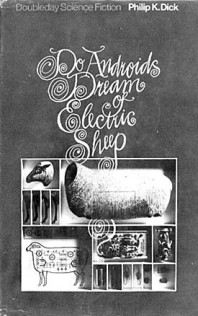The History of Hacking: Stories from the outlaws of network culture
 The History of Hacking is an interesting documentary by Discovery Channel which shows interviews and stories of some of the early hackers. It features the must-see story of John Draper, aka Captain Crunch after a whistle found in the cereal box to hack into telephone networks, who is one of the pioneers of hacking.
The History of Hacking is an interesting documentary by Discovery Channel which shows interviews and stories of some of the early hackers. It features the must-see story of John Draper, aka Captain Crunch after a whistle found in the cereal box to hack into telephone networks, who is one of the pioneers of hacking.
As Michel Foucault mentioned: “We are subjected to the production of truth through power and we cannot exercise power except through the production of truth.” (See: Power/Knowledge: Selected Interviews and Other Writings) The counter-discourse of hacking provides the ability to use the existing networks in ways they were not supposed to by the reigning power. Nowadays phone tapping, a way of hacking someones phone line, is legal for the only institution that also has the monopoly of violence, namely the government. Besides the monopoly of violence, there is thus also the monopoly of surveillance through networks.
 The cyberpunk movement of the 80s shows a glorification of the hacker as an outlaw: A modern day cowboy who challenges the system and is always one step ahead of it. Swift and uncatchable, almost like a liquid substance seeping through the cracks of the networks. The stories of Philip K. Dick often feature characters that have abilities to unravel mysteries of computer networks. Rick Deckard in Do Androids Dream of Electric Sheep is one such outlaw. A grim person who has an extraordinary ability to recognize humanoid cyborgs.
The cyberpunk movement of the 80s shows a glorification of the hacker as an outlaw: A modern day cowboy who challenges the system and is always one step ahead of it. Swift and uncatchable, almost like a liquid substance seeping through the cracks of the networks. The stories of Philip K. Dick often feature characters that have abilities to unravel mysteries of computer networks. Rick Deckard in Do Androids Dream of Electric Sheep is one such outlaw. A grim person who has an extraordinary ability to recognize humanoid cyborgs.
A real-life outlaw story was experienced by Kevin Mitnick, who was wanted by the FBI from 1992-1995, however shows the criminalization of the art of hacking into networks. He was sent to prison in 1995 for five years and was released in January 2000. The story told in this documentary shows the duality of hacking. It is a kind of voyeurism, but it is also a heroic way to challenge networks and lay bare their vulnerabilities. No wonder many hackers also work as security advisers, Kevin Mitnick is no exception.
Hacking remains popular nowadays, but is no longer restricted to the outlaws. Simple tools to hack Hotmail or Myspace are provided by organized hacking troupes. This poses the question if hacking has lost its romance and has been degraded to a horrible nuisance, or even a nightmare for the everyday user of a network.
The documentary provides a really good basis for everyone interested in the early days of hacking. To see the whole documentary, which also includes an interesting interview with Apple co-founder Steve Wozniak on hacking and the early Apple days, check out the embedded video below.

You have been tagged with the Eight things about me meme.
Anne
July 1, 2007 at 6:57 pm
Oh nooo, personally generated spam! They’ve gotten to you too Anne! 😉
newmw
July 3, 2007 at 9:37 am
And it is spreading fast! *consciously*
Anne
July 3, 2007 at 9:53 pm
[…] As Michel Foucault mentioned: “We are subjected to the production of truth through power and we cannot exercise power except through the production of truth.” (See: Power/Knowledge: Selected Interviews and Other Writings) The counter-discourse of hacking provides the ability to use the existing networks in ways they were not supposed to by the reigning power. Nowadays phone tapping, a way of hacking someones phone line, is legal for the only institution that also has the monopoly of violence, namely the government. Besides the monopoly of violence, there is thus also the monopoly of surveillance through networks. Source: NewMW […]
» Discovery Channel History of Hacking TastyFlix: all the videos we could find world wide
August 17, 2007 at 10:13 pm